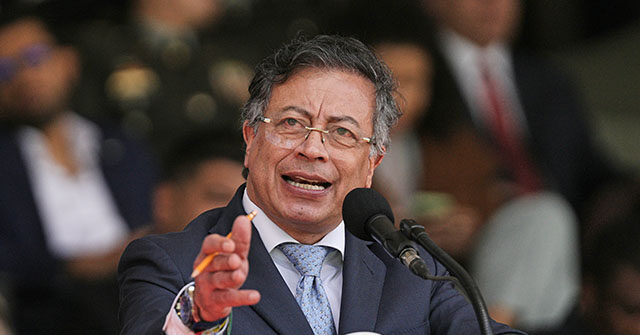Petro made the announcement in a post on his official Twitter account, quoting a CNN report claiming that, according to unnamed sources, the United Kingdom suspended intelligence sharing with the U.S. “because it does not want to be complicit in U.S. military strikes and believes the attacks are illegal.”
“All levels of law enforcement intelligence are ordered to suspend communications and other dealings with US security agencies. This measure will remain in effect as long as missile attacks on boats in the Caribbean continue. The fight against drugs must be subordinate to the human rights of the Caribbean people,” Petro’s message reads.
Petro vehemently opposes the United States’ military deployment in Caribbean international waters and the strikes against drug-trafficking vessels as part of President Donald Trump’s efforts to curb the flow of drugs entering the United States. At press time, at least 76 people have reportedly been killed in the strikes since September.
The Colombian president has repeatedly accused President Trump of “murder” over drug-fighting actions, claiming that none of the men on board the struck drug-trafficking vessels were drug traffickers, a designation that he appears to have taken offense at. Instead, he suggested in late October that they should be called “drug trafficking workers” instead.
Colombian security experts explained to local newspaper El Colombiano that Petro’s decision will affect Colombia more than it would affect the United States as “very little” information is provided by the country to U.S. intelligence systems — in contrast, the information provided by the U.S. to Colombia is “crucial.”
Intelligence and Conflict expert Jorge Mantilla told the newspaper that although Petro’s measure may be seen as an expression of a “strong and sovereign” stance, “it ends up being tremendously naive in practical terms and ineffective.”
“Colombia stands to lose the most, considering that a large part of the intelligence cooperation schemes in which Colombia participates, such as the Egmont Group or the NATO cooperation framework, revolve around and are structured around the U.S. intelligence community,” Mantilla explained.
Colombian defense analyst Erich Saumeth stressed to El Colombiano that the suspension of intelligence cooperation with the United States will affect Colombia’s drug-fighting efforts, as U.S. intelligence is largely used in the region’s drug-fighting strategies. Saumeth asserted that the decision was “circumstantial, neither planned nor carefully thought out.”
“If the United Kingdom had not made that decision, it would never have crossed the Colombian president’s mind. And that, in a way, is an indication that there is no clear policy on the part of the Colombian presidency on anti-narcotics matters,” Saumeth said.
Petro is an avid defender of the legalization of cocaine, a drug that he claims is “less harmful” than sugar. Petro himself has been accused by former members of his administration of allegedly suffering from drug addiction problems. Thanks to his administration’s lenient drug fighting policies, Colombia has seen a dramatic record-breaking surge in production, according to the latest report from the United Nations Office on Drugs and Crime (UNODC).
Petro has publicly rejected the report and questioned its findings. In September, he called for the United Nations to “review” the drug report on grounds that UNODC allegedly “artificially inflated” the statistics presented in it.
President Trump cited the surge in cocaine production documented in Colombia in a September determination to Congress designating Colombia and other countries as having failed to adhere to international counternarcotics agreements. A month later, in October, President Trump announced the stoppage of all U.S. payments and subsidies to Colombia, calling Petro an “illegal drug trafficker.”
The U.S. Department of the Treasury’s Office of Foreign Assets Control (OFAC) imposed sanctions on Gustavo Petro in October for having engaged in, or attempted to engage in, “activities or transactions that have materially contributed to, or pose a significant risk of materially contributing to, the international proliferation of illicit drugs or their means of production.”
Christian K. Caruzo is a Venezuelan writer and documents life under socialism. You can follow him on Twitter here.
Breitbart News
Read the full article .


